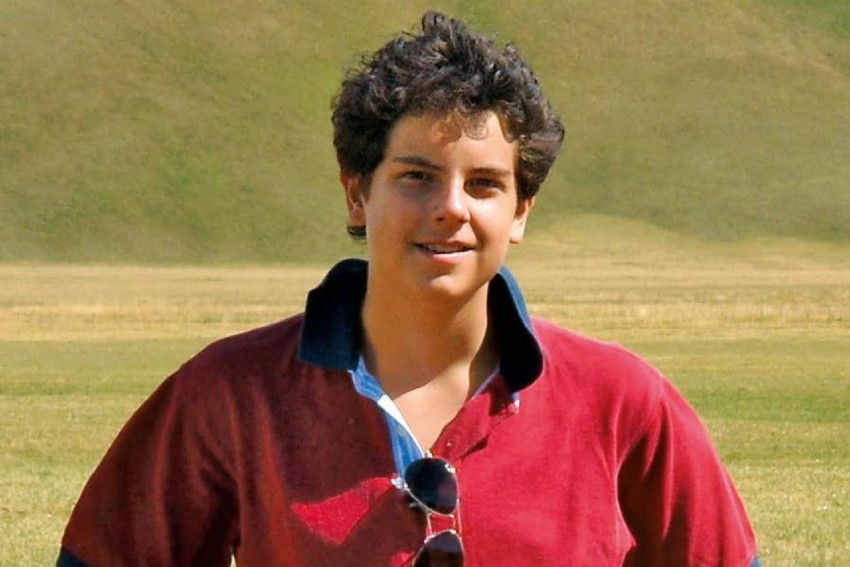Pope Francis has written a Preface for a new book by American Jesuit Fr. James Martin.
The text of the Preface was released by Vatican News (link).
[Special Note: We are about to have two live podcasts:
(1) at 11 a.m. Eastern Time in the US (5 p.m. in Rome) on the liturgy, with Matt Gaspers, at this link, and
(2) a second at 12:30 p.m. Eastern Time in the US (6:30 p.m. in Rome) on the present situation in Lebanon with Christopher Hart-Moynihan, Director of our “Friends of Lebanon Project”, and renowned Lebanese scholar Professor Habib Malik, whose father was a key drafter of the Universal Declaration on Human Rights in 1948, at this link.
All are welcome to listen to these podcasts. —RM]
***
Here is the text of the Pope’s Preface:
Pope: Jesus didn’t just talk about eternal life, He gave it to us
Pope Francis pens the preface to the Italian version of the book “Come Forth: The Raising of Lazarus and the Promise of Jesus’s Greatest Miracle” by American Jesuit Father James Martin, in which he reminds us that Jesus didn’t just talk about eternal life; He gave it to us.
By Pope Francis
Father James Martin, the author of many other books that I know and appreciate, deserves our gratitude for this new text devoted to what he calls “Jesus’s greatest miracle”: the resurrection of Lazarus. There are many reasons to thank him, closely tied to the way Come Forth unfolds. It’s always fascinating, and never predictable.
First and foremost, Father James makes the biblical text come alive. He analyzes it with the eyes and erudition of a diverse set of writers who have probed this passage deeply, capturing their many facets, emphases, and interpretations. But his reading is always “loving,” never detached, nor coldly scientific. Father James has the perspective of a person who has fallen in love with the Word of God. As I read the careful arguments and exegeses of the biblical scholars he cites, it made me wonder how often we manage to approach Scripture with the “hunger” of a person who knows that that word really is the Word of God.
The fact that God “speaks” should give us a little jolt each and every day. The Bible truly is the nourishment we need to handle our lives. It’s the “love letter” that God has sent—since long ago—to men and women living in every time and place. Treasuring the Word, loving the Bible, carrying it with us every day, with a little book of the Gospel in our pockets, maybe even pulling it up on our smartphones when we have an important meeting, or a difficult encounter, or a moment of unease… actions like these will help us grasp the extent to which Scripture is a living body, an open book, a vibrant witness to a God that is not dead and buried on the dusty shelves of history. Instead, Scripture journeys with us always, even today—and it walks with you, too, who are now opening this book, perhaps intrigued by this well-known story whose deep, full meaning has nevertheless not been understood by everyone.
What’s more, these pages contain one of the truths of Christianity that always stays current, and that remains fruitful. The Gospel is concrete, and eternal; it has just as much to do with our inner being and our interior life as it does with history and daily life. Jesus didn’t just talk about eternal life; He gave it to us. He didn’t just say “I am the resurrection”; He also resurrected Lazarus, who’d been dead for three days.
Christian faith is the ever-present co-mingling of the eternal and the contingent, of heaven and earth, of the divine and the human—never one without the other. If our faith were just “earthly,” what would distinguish it from any well-intentioned philosophy, or well-structured ideology, or well-developed mode of thought? That remains simply that—a theory detached from the times, and from history? If Christianity were just concerned with the “after,” or with eternity alone, this would be a betrayal of the choice that God carried out once and for all, casting His lot with all of humanity. The Lord did not ‘pretend’ to incarnate. He chose to enter human history, so that the history of men and women might take the form of the Kingdom of God, the time and place where peace sprouts, hope becomes substantial, and love brings life.
All of us, then, are Lazarus. Rooting himself firmly in the Ignatian tradition, Father Martin brings us directly into the story of this friend of Jesus. We’re His friends, too—“dead” as we sometimes are on account of our sins, our failings and infidelities, the despondency that discourages us and crushes our spirits. Jesus is hardly afraid to get close to us—even when we “reek” like a dead body that’s been buried for three days.
No, Jesus isn’t afraid of our death, or our sin. He waits just outside the closed door of our hearts, that door that only opens from within, that we lock with a double bolt whenever we think God could never forgive us. But as we read James Martin’s detailed analysis, we can practically feel the profound meaning of what Jesus does when He finds Himself before a dead man who is really dead, whose body gives off a nasty odor—a metaphor of the moral rot that sin produces in our souls. Jesus isn’t scared of coming close to sinners—to any sinner, even the most brazen and undaunted. He has one single preoccupation: that no one goes missing, that none are deprived of the possibility of feeling the loving embrace of His Father.
It’s interesting that even a well-known contemporary novelist like Cormac McCarthy, who died in 2023, lingered over the question of what the “work of God” might be. One of the characters in Cities of the Plain (1998) says: “He believed in God even if he was doubtful of men’s claims to know God’s mind. But that a God unable to forgive was no God at all.” That’s exactly right: God’s “job” is to forgive.
Reading Father James Martin’s book also made me remember a line by Alberto Maggi, an Italian Bible scholar. He wrote about the raising of Lazarus like this: “What Jesus teaches us with this miracle is not so much that the dead rise, but that the living do not die!” What a wonderful insight, and what a paradox! Of course, the dead rise, but how true it is to recall that we the living never die! Yes, death does come, not just for us, but for our families and those dear to us—for everyone, really.
We see so much death all around, unjust and painful death, death caused by war, by violence, by Cain’s abuse of power toward Abel. But we men and women are destined for eternity. All of us are. Each of us is a “half-line” or “ray,” to borrow a concept from geometry: we each have a starting point—our birth on this planet—but our lives all point toward the infinite. Yes, that’s right, toward infinity! What Scripture calls “eternal life” is the life that awaits us after death. It’s the life we can already touch right here and right now, as long as we dwell not in the egoism that saddens us but in the love that widens, that dilates our hearts. We are made for eternity.
The resurrection of Lazarus—whom we know is our friend, thanks to this book by James Martin—reminds us of that fact, and bears witness to it.
+ Francis, Vatican City, March 11, 2024
This is the preface to Lazzaro Vieni Fuori, by James Martin, SJ, published by Libreria Editrice Vaticana (LEV), the Italian-language translation of Come Forth (HarperOne). Pope Francis’s preface was translated into English by Griffin Oleynick, Ph.D.
[End, Vatican News text of the Pope’s Preface]






Facebook Comments